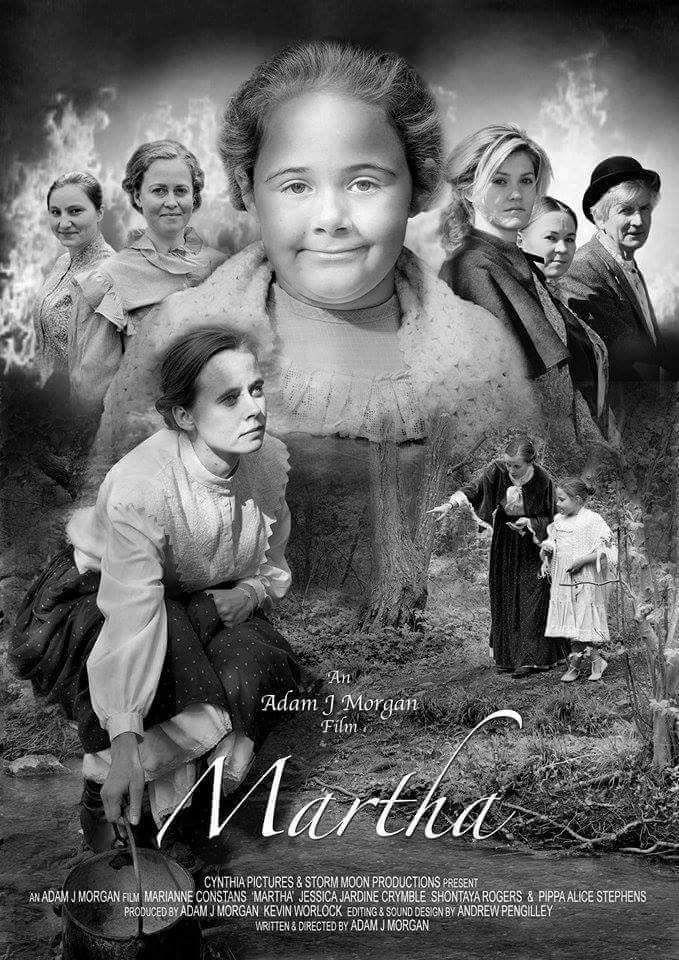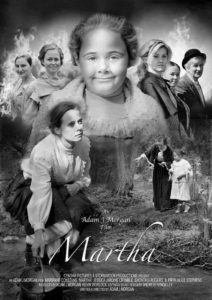
Short Film Review “Martha”
WATCH THE FILM HERE
First, the Recap:
Life is precious. This immutable fact resonates within us as human beings, and can be applicable to so many facets of our existence, especially when it comes to the welfare of children. They represent the continuation of our family lines, the innocence of how to view the world around us. In short, the future. When this is lost, it is a mourning like no other. It is 1870, England, and one mother, Jane Dash (Marianne Constans) now confronts that forlorn, dispirited reality in remembering her 5-year old daughter, Martha (Shontaya Rogers). Overcome with grief and blaming herself for the event which took Martha away from her, it is from a mother’s heart the story, in its sorrowful details, is recalled.
Enjoying a peaceful, fulfilled lifestyle while taking in all the wonders around them in full, Jane and Martha’s closeness was bonded by that parental love as can only be experienced in having a child. In the small village where they reside, everyone is smitten with Martha’s charm and poise. One day, Jane heads to the river to fetch needed water, carefree and happy, until unexpected and horrifying news reaches her through a woman, Hannah Carter (Jessica Jardine Crymble), running and desperate to advise her about the tragedy unfolding. In the aftermath, with Jane’s entire world crumbling, she not only has to encounter the guilt of her own conscious, but the judging eyes and attitudes of the townsfolk, as a community becomes permanently, deeply, scarred by one fatal choice.
Next, my Mind:
In a truly different twist on the history of and reasons for making a film, U.K.-based writer/director/cinematographer Adam J. Morgan has pulled this narrative from actual life events in his own family’s ancestral heritage, which only serves to make the 5-minute runtime and the content within that much more impactful for both those involved and viewers. Executed with voice-over narration ala documentary style, the lead character’s thoughts are conveyed as such while crisply shot images put the potent visuals front and center, delivering an account that is completely chilling and heart-wrenching yet still filled with endearing flashbacks highlighting better times. Additionally, the sequences following the occurrence are just as affecting, showcasing the, sadly, unkind nature of humanity and the weight of mistakes made.
Actress Marianne Constans, having no actual spoken dialogue in the film itself, relies strictly on her facial expression and body language to illustrate the myriad of emotional highs and lows her character Jane Dash is experiencing, and does so with precision and intent. From the glow of happiness and contentment with life to the sheer panic and horror of an unimaginable loss, Constans plays it very well. Likewise, young actress Rogers has a similar chance to engage the audience just from actions and appearance, which is carried off well here, too, moreso when having to enact both the most joyful and harshest sequences in the film. Supporting turns from Crymble, Kevin Worlock, Mira Merrygold, Marie Peneau, & Georgina Vowles among others round out the proceedings.
In total, “Martha” stands out in its effective utilization of not only a director’s literal, stirring family history as the subject and how a simple act can have disastrous ramifications, it also represents still another fine example of being able to say much in so little time, and do it with enough pathos, drama, quality filmmaking, and heart to draw in the viewer and make it stick.
As always, this is all for your consideration and comment. Until next time, thank you for reading!




